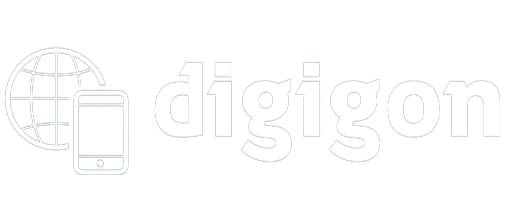
Introduction
Entering the professional world as a fresher is an exciting journey filled with new opportunities and challenges. One of the crucial steps in this journey is acing your interviews. However, many fresher candidates unknowingly make interview mistakes that can hinder their chances of securing their desired positions. In this article, we’ll delve into the top fresher interview mistakes to avoid, provide you with valuable insights and strategies to shine during your interviews, and explore effective ways to handle nervousness.
Top Fresher Interview Mistakes to Avoid
Here are the top fresher interview mistakes that you should steer clear of:
Lack of Preparation: A Recipe for Disaster
One of the gravest mistakes to avoid as a fresher is entering an interview without proper preparation. Doing so sends the signal that you aren’t genuinely interested in the role or the company. Research the company’s history, culture, products, and recent achievements. Familiarize yourself with the job description and prepare answers to common interview questions.
Ignoring the Power of Body Language
Your body language speaks volumes before you even utter a word. Avoiding eye contact, slouching, or fidgeting are among the top fresher interview mistakes to avoid. Maintain a confident posture, offer a firm handshake, and make eye contact to convey your confidence and enthusiasm.
Oversharing Personal Information
While interviewers may want to know more about you as a person, avoid oversharing personal details. Stick to professional anecdotes that highlight your skills and experiences relevant to the role. Refrain from discussing personal problems or irrelevant information.
Not Asking Thoughtful Questions
Treat the interview as a two-way street. When the interviewer asks if you have any questions, never respond with a simple “No.” Instead, prepare a few thoughtful questions that showcase your genuine interest in the role and the company. This is a crucial step to avoid the top fresher interview mistakes.
Disregarding the STAR Technique
When responding to behavioral questions, the STAR technique (Situation, Task, Action, Result) can make your answers more structured and impactful. This technique helps you provide specific examples of how you’ve handled challenges in the past, thereby avoiding common fresher interview mistakes.
Neglecting Soft Skills
Fresher candidates often focus solely on technical skills and overlook the importance of soft skills like communication, teamwork, and problem-solving. Highlight how you’ve developed these skills through your academic projects, internships, or extracurricular activities. This emphasis on soft skills helps you avoid the top fresher interview mistakes.
Not Tailoring Your Answers
Craft your responses to align with the specific job requirements and company values. Avoid giving generic answers that could apply to any job. Show that you’ve done your homework and understand how your skills fit the role. By personalizing your answers, you sidestep the top fresher interview mistakes.
Inadequate Follow-up
After the interview, sending a thank-you email can leave a positive impression. Express gratitude for the opportunity, briefly reiterate your interest in the role, and reaffirm how your skills align with the company’s needs. This proactive step prevents the occurrence of the top fresher interview mistakes.
Do's and Don'ts in an Interview
Do's
- Research: Thoroughly research the company, its products, services, and recent developments.
- Dress Appropriately: Choose professional attire that aligns with the company’s dress code.
- Prepare Stories: Have anecdotes ready to illustrate your skills and experiences.
- Practice Responses: Rehearse common interview questions and behavioral scenarios.
- Listen Attentively: Pay close attention to the interviewer’s questions and respond thoughtfully.
- Ask Questions: Prepare insightful questions to show your interest in the role and the company.
- Highlight Soft Skills: Emphasize your teamwork, communication, and adaptability skills.
- Use the STAR Technique: Structure your answers using the STAR technique for clarity.
- Follow Up: Send a thank-you email within 24 hours of the interview to express gratitude.
Don'ts
- Don’t Arrive Late: Plan your commute to arrive early and avoid unnecessary stress.
- Avoid Overconfidence: Confidence is good, but arrogance can be off-putting.
- Don’t Ramble: Keep your answers concise and relevant to the question asked.
- Avoid Negative Remarks: Refrain from criticizing previous employers or colleagues.
- Don’t Focus Solely on Salary: While compensation is important, show interest in the role itself.
- Avoid Interrupting: Let the interviewer finish their question before responding.
- Don’t Bring Up Personal Issues: Keep the conversation professional and job-related.
- Avoid Exaggeration: Be truthful about your skills and experiences.
- Don’t Forget Non-Verbal Communication: Pay attention to your body language and facial expressions.
How to Handle Nervousness in an Interview
Nervousness is natural, but it can be managed effectively:
- Practice, Practice, Practice: Rehearse your answers and practice in front of a mirror or with a friend.
- Visualization: Visualize yourself succeeding in the interview to boost your confidence.
- Deep Breathing: Practice deep breathing exercises before entering the interview room to calm your nerves.
- Positive Self-Talk: Replace negative thoughts with positive affirmations to boost your self-esteem.
- Mindfulness: Focus on the present moment and your abilities rather than dwelling on potential outcomes.
- Preparation: Thorough research and preparation will give you the confidence to tackle any question.
- Arrive Early: Arriving early will give you time to settle in and adjust to the environment.
- Smile: Smiling not only conveys confidence but also releases feel-good hormones that reduce stress.
- Accept Imperfection: Understand that no one is perfect, and a minor stumble won’t define your interview.
Conclusion
Securing your dream job as a fresher is an achievable goal if you avoid common interview mistakes. By preparing thoroughly, focusing on body language, tailoring your answers, and highlighting your soft skills, you’ll stand out as a top candidate. Remember, an interview is not just an evaluation of your skills but an opportunity to showcase your personality and enthusiasm for the role. So, stay confident, stay prepared, and ace those interviews!
Frequently Asked Questions (FAQs)
Q: How can I overcome nervousness before an interview?
A: Practice deep breathing techniques, rehearse your answers, and remind yourself of your strengths.
Q: Is it okay to ask about the salary during the first interview?
A: It’s generally better to wait until the employer brings up the topic of compensation.
Q: What should I do if I don't know the answer to an interview question?
A: Stay calm and honest. Offer your thought process and willingness to learn.
Q: How important is my online presence to potential employers?
A: Your online presence matters. Keep your social media profiles professional and up-to-date.
Q: Should I bring up my weaknesses during the interview?
A: While it’s not necessary, if the question arises, discuss how you’ve worked on improving those areas.
Q: How can I make a lasting impression after the interview?
A: Send a thank-you email and consider connecting with interviewers on professional networking platforms.

Add a Comment